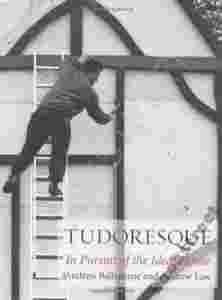|
Tudoresque architecture is viewed around the world
as a symbol of British identity. This style has a
powerful hold on the popular imagination, representing
the idea of 'home' to British citizens, both in the
United Kingdom and abroad. Some love it, others hate it,
but the Tudoresque is still being built, sometimes to
give a house a settled, old-fashioned air, sometimes to
supply exotica. While lots of people live in Tudor-style
houses, very few know anything about their general
history. Tudoresque is an insightful book that explores
the origin of the style, tracing its roots to the
antiquarian enthusiasms of the eighteenth century. It
looks at the Tudoresque cottage style, which later
influenced 1930s architecture, and the Tudor-style manor
house, particularly favoured in the nineteenth century.
While the style has been discouraged since the 1920s -
and is especially reviled by modernists - it continues
often to be chosen when design professionals do not have
the upper hand. Contrary to common view, the authors
show how Tudoresque is the mainstream of
twentieth-century British architecture and a mass
phenomenon. Whether 'mock Tudor', 'Tudorbethan' or
'Tudor Revival', they are important not so much because
they are great architecture, but because they are
everywhere. Illustrated with more than 200 years of
Tudoresque buildings, and including examples from
Britain, America, India and East Asia, this perceptive
and knowledgeable book will enlighten anyone with a
curiosity about the subject or about the house in which
they live.
|
|

